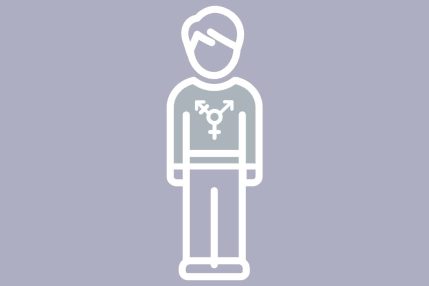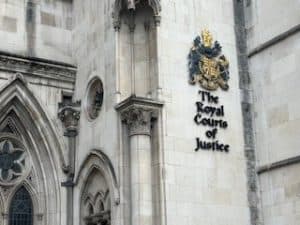“[This is] a situation which would challenge anyone, especially where there is so little consensus anywhere about how children with gender dysphoria should be treated, and so little trust.”
O v P and Q [2024] EWCA Civ 1577 is a case centred around Q, a transgender young person, and the realities and struggle faced by his parents trying to do what is best for him. It highlights the real-world worries of parents with transgender children, of trying to make them happy, safe and seen, and at the same time seeking to protect their wellbeing and safety and ensure that they don’t make a decision they will come to regret. It also touches on the wider, political and ideological debate about transgenderism, featuring the conflict among those in a policy-making position, and the lack of medical evidence and consensus regarding the treatment of trans-youth in the UK. Furthermore, the case raises legal issues about the agency of young people in consenting to medical treatment, when this can be overridden by the court and how the court can act in the young person’s best interests.
Background
Q’s parents’ marriage had broken down acrimoniously prior to the proceedings, and in the aftermath of that, Q’s father began a relationship with a new partner, who themselves was the parent of a female to male transgender teenager. In 2020, at the age of 12, Q came out as transgender and wanted to transition from female to male. Q’s parents disagreed with one another about how to manage Q’s gender dysphoria, and while Q’s father accepted and supported this transition, Q’s mother did not, and found the process difficult. This caused a rift between Q and his mother. Q was left feeling rejected and unsupported, especially after his mother chose not to use his preferred name, instead choosing to misgender him and call him by his original female birth-name. As such, the relationship between the two had deteriorated so much that Q lived with his father since 2021 and had very little contact with his mother.
Q’s mother proceeded to arrange counselling with Q’s father, and between all three of them from 2020 to 2022. Unfortunately, the counselling didn’t work out due to a fundamental disagreement between the family. Consequently, in 2022, Q’s mother made an application to the court for a Prohibited Steps Order (PSO). A PSO is a legally binding court order made to prevent a person with parental responsibility from taking steps towards a specific action without the court’s permission, which in this case sought to prevent Q’s father from arranging treatment for Q for his Gender Dysphoria.
Q’s mother then asked Q to undergo an Autism Assessment in October 2022, which, while not diagnosing Q with autism, found some traits of the condition. The local council also conducted an assessment of Q in November 2022 and found that he had suffered disruption and trauma due to a combination of the breakdown of his parents’ relationship, their animosity towards each other and his gender dysphoria. This conclusion was supported by Q’s GP in December 2022 who provided evidence to the court that Q suffered from Gender Dysphoria but had no clinical evidence of mental health problems.
The family therefore agreed that Q should join the NHS waiting list for cross-sex hormone treatment (i.e. to develop masculine physical characteristics), but Q’s mother disagreed that they should pursue private treatment, and the court granted an interim PSO preventing private treatment. Before the first instance hearing in April 2024, Q reached his 16th Birthday, meaning that he was officially ‘Gillick Competent’.
Relevant Statute, Case Law and The Cass Review
Section 8(1) of the Family Law Reform Act 1969 provides that “the consent of a minor who has attained the age of 16 years to any surgical [or] medical treatment… shall be as effective as it would be if they were of full age and … it shall not be necessary to obtain consent from his parent or guardian”.
This statutory framework is subsequently reinforced by the case of Gillick v West Norfolk and Wisbech AHA [1986] AC 122 (Gillick). It establishes the standard known as ‘Gillick Competence’, whereby a young person over the age of 16 who has capacity is able to consent to medical treatment, Furthermore, it establishes the lawfulness of children under the age of 16 having capacity to consent to medical treatment (Lord Scarman at 188h- 189B):
“In the light of the foregoing I would hold as a matter of law the parental right to determine whether or not their minor child below the age of 16 will have medical treatment terminates if and when the child achieves a sufficient understanding and intelligence to enable him or her to understand fully what is proposed. It will be a question of fact whether a child seeking advice has sufficient understanding of what is involved to give a consent valid in law. Until the child achieves the capacity to consent, the parental right continues save only in exceptional circumstances”.
The case of Re R (A Minor) (Wardship: Consent to Treatment) [1992] Fam 11 builds on the standard set by Gillick and establishes that there can be concurrent powers of consent, i.e. shared between the young person and their parents.
The case of Re W (A Minor) (Medical Treatment: Court Jurisdiction) [1992] 4 All ER 627 determines that a young person’s ability to consent isn’t absolute, meaning that, should they refuse something that is to their advantage, such as a young person suffering from anorexia nervosa and refusing help, it falls to the inherent jurisdiction of the court to make orders in the best interests of the individual.
The case of Bell & Anor v The Tavistock and Portman NHS Foundation Trust [2021] EWCA Civ 1363 concerns puberty blockers being given to young people under 16. At first instance, the High Court decided that those under 16 would be unlikely to be given puberty blockers without the support or permission of the court. This was overruled by the Court of Appeal, where it was decided that the decision as to the competence of the young person to consent was one for the clinicians to make on a case-by-case basis, not the court.
The case of AB v CD [2021] EWHC 741 (Fam) determines that parents were able to give consent to their child being administered puberty blockers without the need for an application to court (having decided the case after the Divisional Court in Tavistock v Bell but before the decision of the Court of Appeal). The judge stated that “I am wary of the court becoming too involved in highly complex moral and ethical issues on a generalised rather than a case specific basis”.
The Cass Review (published in April 2024), an independent review commissioned by the NHS and led by Dr Hilary Cass, scrutinised “the clinical services provided to children and young people who seek help from the NHS to resolve their gender-related distress.” The review was criticised by many pro-trans groups such as Mermaids and TransActual as being flawed, biased, unsubstantial and as upholding double standards. The review acknowledged that:
“This is an area of remarkably weak evidence, and the results of studies are exaggerated or misrepresented by people on all sides of the debate to support their viewpoint. The reality is that we have no good evidence on the long-term outcomes of interventions to manage gender related distress”.
The Cass Review also elaborated on the issues which accompany such a controversial area of medical treatment and law, namely how “professionals are so afraid to discuss their views…and where name calling echoes the worst bullying behaviour”. Following the Cass Review, NHS England wrote to all NHS gender clinics advising ‘extreme caution’ is required before recommending cross-sex hormone treatment for young people aged under 18.
First Instance Proceedings
Q’s mother first applied to court in August 2022. She asked the court to make a Prohibited Steps Order under section 8 of the Children Act 1989, seeking to prevent Q’s father from arranging for him to access gender dysphoria treatment. She also sought a best interests declaration under the court’s inherent jurisdiction, which is a special, “inherent” power bestowed upon the High Court to make decisions or rulings where there is a gap or mischief in the statute, thereby acting as a safety net, as seen in Re W (A Minor) (Medical Treatment: Court Jurisdiction) [1992] 4 All ER 627.
It was already agreed that Q could join the waiting list at the NHS for cross-sex hormone treatment, and the debate that arose related to Q seeking private treatment as that had recently become available in the United Kingdom at a private clinic called Gender Plus following CQC registration in January 2024. Despite her refusal for Q to receive private treatment, Q’s mother agreed to him only undergoing a 6-month assessment at Gender Plus and invited the court to adjourn the proceedings until the assessment was complete and for the case to be restored to court for further consideration thereafter. Following the publication of the Cass Review, she also asked the court to make a declaration that any proposal for someone under the age of 18 to be prescribed puberty blockers or gender affirming hormones must be subject to the oversight of the court. To support her argument, she relied upon the findings of the Cass Review, which she claimed invalidated the court’s decisions in Bell & Anor v The Tavistock and Portman NHS Foundation Trust [2021] EWCA Civ 1363 and in AB v CD [2021] EWHC 741 (Fam). She further argued that there was a legitimate purpose in adjourning proceedings and for the court to continue to have oversight because matters were in a state of flux as:
(i) the legal and regulatory landscape for gender dysphoria treatment was changing rapidly;
(ii) Dr Hilary Cass’ report “Independent Review of Gender Identity Services for Children and Young People” was only published on 10 April 2024, a week before the hearing;
(iii) Government were continuing to take take action in response to the Cass Review; and
(iv) Gender Plus were a private provider, whose practices and procedures differed from those on the National Health Service.
On the other hand, Q and his father invited the court to dismiss the proceedings. He submitted that Q, as a young person of 16, should be assessed and he should then make his own decisions with the assistance of treating clinicians as long as he had capacity within the meaning of the Mental Capacity Act 2005. He further argued that the proceedings had gone on so long [over 2 years] so as to be damaging to Q, and that the court should not oversee the process of assessment or treatment by clinicians who are properly regulated and qualified, as was decided to be the case in the Court of Appeal judgment of Bell v Tavistock.
Ultimately, the core issues of the case were that the mother objected to Q undergoing any gender related medical treatments before he was 18 on the basis that the effects are not properly known and that the consequences of such treatment could cause him harm. The mother also contended that Q has been affected and influenced by what he had seen online, by having a transgender partner, and by his father’s attitude towards, not only the issue itself, but also her personally.
For the main impetus of her argument, Q’s mother relied upon the Cass Review’s findings, highlighting that the review recommended ‘an extremely cautious clinical approach and strong clinical rationale for providing hormones before the age of 18.’ The mother used these findings to suggest that the decisions made in Bell v Tavistock and in AB v CD could no longer stand, which would mean that the puberty blockers and cross-sex hormones would be classified as belonging to a special category, the administration of which would be subject to the oversight of the court.
On the other hand, Q’s father’s arguments relied on statute, namely section 8 of the Family Law Reform Act 1969 (see above). He maintained that not only is the concept of transgenderism and gender identity legally recognised, but they are also protected under Article 8 of the ECHR: the right to private and family life. This meant that it was not only lawful for Q to consent to treatment at a private clinic, but it was also his right to do so considering such protections, and the fact that there was no realistic prospect of him receiving any support, assessment or treatment treatment under the NHS (the timeframe for which was likely to be years rather than months).
Q’s father also submitted that the mother would always oppose Q undergoing any gender affirming medical treatment because she held ‘entrenched and politicised views’. Q’s father further argued that it was not the position of the court to critique or interrogate the outcome of the Cass Review, upon which so much of the mother’s case relied. Ultimately however, the father’s arguments sought to maintain the integrity of the decisions of the court in Bell and Tavistock and AB v CD, and that of Section 8 of the Family Law Reform Act 1969, whereas the mother submitted that these were erroneous and should be quashed. Legal representation for Q supported the legal submissions made on behalf of his father.
Evidence
Q was assigned a Guardian at the onset of the court case, and having met with Q and their parents on multiple occasions, they gave evidence to the court. They told the court that the parenting styles of Q’s parents differed greatly, describing the mother’s as “appropriately balanced authoritative and permissive… moderate in both responsiveness and demand”. The father’s style was described as “permissive and indulgent, characterised by a relaxed and responsive approach towards Q, sometimes overly accepting and deferring to his wishes.” The Guardian expanded, claiming that such a dichotomy of parenting styles resulted in Q becoming “closely aligned with his father and rejecting of his mother”.
The Guardian also gave evidence as to Q’s wellbeing generally, affirming that Q was in a happy romantic relationship, was focussing well on academic work and his home life was comfortable, familiar and safe. The Guardian also said that Q was mature and well-informed about his circumstances and position. On the other hand however, the Guardian related Q’s hostility to his mother, in large part based on the fact that she had prolonged the process, leading to further negative impact upon his emotional state. All Q wanted was for the legal proceedings to end.
The Judge went on to make a point of issuing a statement in support of the mother, stating that “she has faced a lot of criticism for these proceedings, criticism I firmly reject… the price she has paid for fighting for what she considers to be best for her child is to lose her relationship with him.” The Judge went on to say that “[this is] a situation which would challenge anyone, especially where there is so little consensus anywhere about how children with gender dysphoria should be treated, and so little trust.”
Images: The Royal Courts of Justice, Strand, London
Judgment At First Instance
The case came before the High Court in April 2024. In her judgment, the Honourable Mrs Justice Judd focused the case back into legal territory, away from the political, ideological or emotive motivations which had arisen during the proceedings. In doing so, Mrs Justice Judd acknowledged that:
“I doubt those who passed the Family Law Reform Act in 1969 foresaw a time in which the internet would enable 16-year-olds to be able to carry out intense research on their own, a situation where so many young people would experience distress in their birth gender, or the level of disagreement about treatment for children… While the findings of the Cass Review may turn out to be very significant, I do not think they justify a first instance judge departing from the decisions in Bell and AB.”
Mrs Justice Judd went on to say “My starting point is that pursuant to the s8 Family Law Reform Act 1969 and its subsequent authorities, Q is entitled to his own treatment whether or not his parents disagree. She accepted that Q was “impressive, hardworking and intelligent” and had no mental health issues and that questions as to his mental capacity were unlikely to arise. Overall, she agreed with the decisions made in Bell v Tavistock, stating:
“The controversy over treatment of young people… for gender related distress or dysphoria is a matter of public interest, but it is something that should fall to be considered by medical professions and their regulators, or, if need be, the government…. Such issues are a matter for regulation and professional standards rather than a judge sitting in the Family or High Court.”
Mrs Justice Judd went on to conclude that “I do not think there is any realistic basis upon which I would override Q’s consent to treatment by a regulate provider in this country.” Furthermore, she concluded, that there was no legitimate purpose in adjourning the case so that the court could maintain oversight. As such, she discharged the interim orders, including one which prevented private treatment and accepted an undertaking from Q’s father not to finance or facilitate offshore cross-hormone treatment whilst Q was under 18. Moreover, she declined to make a broader declaration that the court should always require oversight of private clinics prescribing puberty blockers or cross-hormone treatment to young people aged under 18.
Court of Appeal Proceedings
In the Court of Appeal, the case was heard by Sir Geoffrey Vos Master of the Rolls, alongside two senior judges, Sir Andrew McFarlane President of the Family Court and Lady Justice King. The Court of Appeal hearing was live streamed on 11 December 2024 as the legal issues were said to be in the public interest.
Sir Geoffrey Vos identified the three main issues of the case, the first being “the issue of whether a child under 16 is competent to consent to or to refuse medical treatment”, as is subject to Gillick and Bell v Tavistock. Second was “the issue of whether a child has mental capacity to consent to or to refuse medical treatment” under the Mental Capacity Act 2005. The third and most contentious issue was whether or not the medical treatment (in this case the administration of cross-sex hormones) was in the child’s best interests.
Sir Geoffrey Vos concluded that there was no opposition about issues of Q’s competence to consent or his mental capacity, only as to the question of whether the treatment was in his best interests. As such, the main issue of the appeal, as summarised by Sir Geoffrey, was whether Mrs Justice Judd was right to reach her conclusion that: “I do not think there is any realistic basis upon which I would override Q’s consent to [cross-sex hormone] treatment by a regulate provider in this country” and that there was no legitimate purpose in adjourning the case.
Court of Appeal Judgment
Sir Geoffrey Vos found that the judge [Mrs Justice Judd] was wrong to refuse to adjourn the mother’s application to allow for the completion of Q’s assessment by Gender Plus so that if necessary that assessment could be further considered by the court. The Court of Appeal then proceeded to adjourn the proceedings with no continuing orders in place and ordered that proceedings could be restored by either party for further directions to be made. He expanded on his reasoning, stating that:
“On careful reflection, however, I think that two factors combined here to make it clearly appropriate for the court to keep the proceedings alive at least until the young person’s assessment by Gender Plus had been completed and can be considered, if necessary by the court in circumstances where there continues to be genuine disagreement between the parties. First, Gender Plus, as a private provider, could not satisfy all the recommendations made in the Cass Review, including, in particular, the recommendation that every case proposed for medical treatment should be considered by a national multi-disciplinary team. Secondly, the Cass Review had only just been published when the judge heard the application, and it was already clear then (and has been demonstrated since) that Government would be taking various (perhaps then unknown) steps to implement it in ways that the court could not predict, but which might (in the future) affect an appropriately objective view of where the young person’s best interests lay.”
It was therefore held that at first instance the Judge misjudged the importance and influence of the Cass Review upon the courts (and government) who were in a policy making position, and in a position to protect young people – as Sir Geoffrey goes on to explain:
“[Mrs Justice Judd] did not, I think, place enough weight on the rapidly changing regulatory environment and the situation of private providers like Gender Plus in the light of the recommendations made by the Cass Review.”
Sir Geoffrey Vos concluded by clarifying that, contrary to Q’s mother’s original argument, cross-sex hormones do NOT belong to a special legal category requiring additional oversight.
Sir Andrew McFarlane went on to state:
“…As was made plain in Re W (A Minor) (Medical Treatment: Court’s Jurisdiction) [1993] Fam 64, the court will only override the consent of a competent young person, who is over 16, where it is necessary for the court to intervene to protect them from ‘grave and irreversible mental or physical harm'”.
Specialist Fertility and Family Law
As can be seen so clearly in this case, gender dysphoria and the decision to transition or assume a non-binary identity can raise challenging and sensitive issues emotionally, medically and legally. These issues arise not just at the point of transition, but also further down the line, where concerns surrounding family building arise. A gender transition can impact an individual’s fertility and can result in infertility. Given the gravity of these issues, it is important for those seeking to transition to consider fertility preservation techniques such as sperm/egg freezing or the storage of embryos before undergoing any hormonal or surgical treatment. Additionally, implementing effective legal and practical strategies enables trans-people, even those who may feel confident that they do not currently want children, to maximise their choices of building a family and having biological child/ren in the future, if they choose to do so.
Find out more about Transgender and Non Binary Fertility and Family Law.







